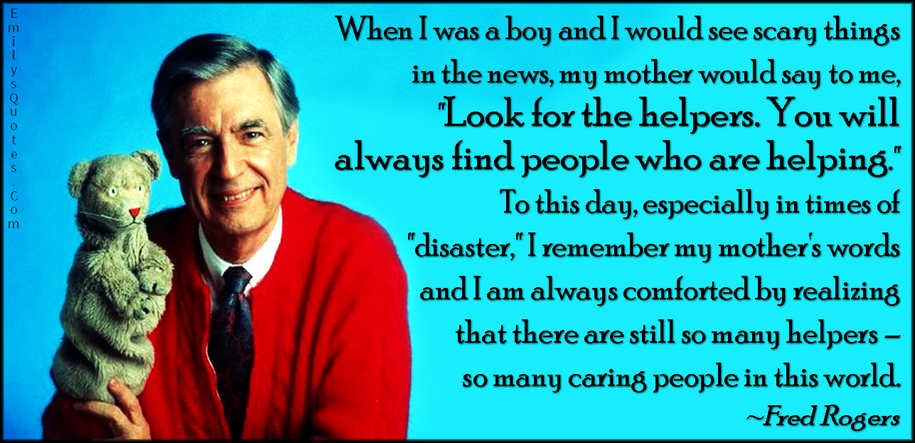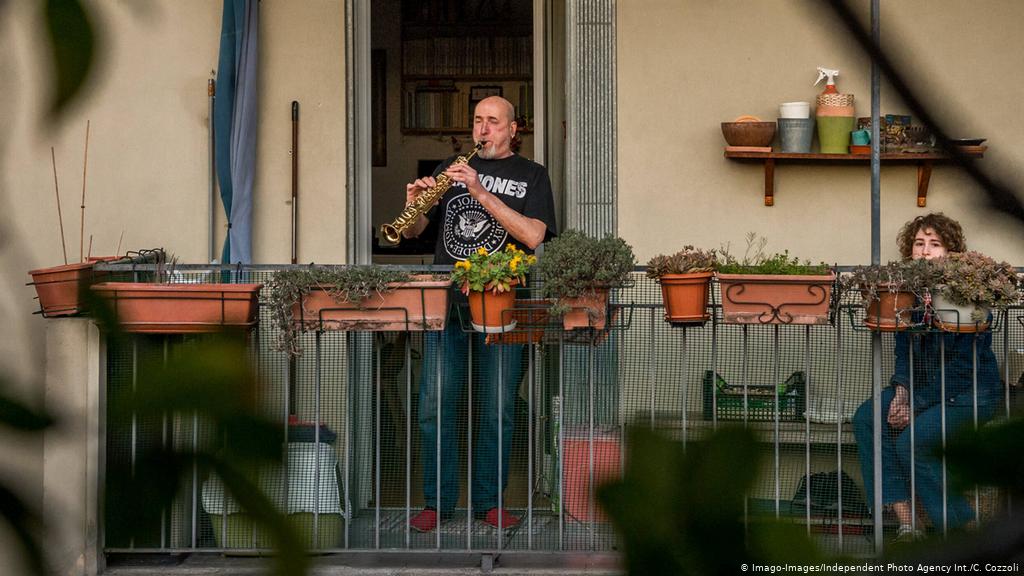
One of my favorite guest bloggers has agreed to provide her always unique perspective on current events. With all that’s been written on the current pandemic, we sometimes need to take a step back and look from a (very) different angle. Kathleen Corcoran is a local harpist, teacher, writer, editor, favorite auntie, and tenuous believer in the goodness of humanity.
Whenever society collapses (or maybe wobbles a bit), we seem to see the extremes in people come out. The very best of heroes stand up, and the very worst villains take advantage. As the late, great Sir Terry Pratchett wrote in Good Omens, “Where you found the real McCoy, the real grace and the real heart-stopping evil, was right inside the human mind.” Of course, disaster also sometimes brings out the very weirdest elements…
Note: The examples provided below are by no means a comprehensive list of incidents. They represent my own personal opinions and are not endorsed or promoted by any other entity.
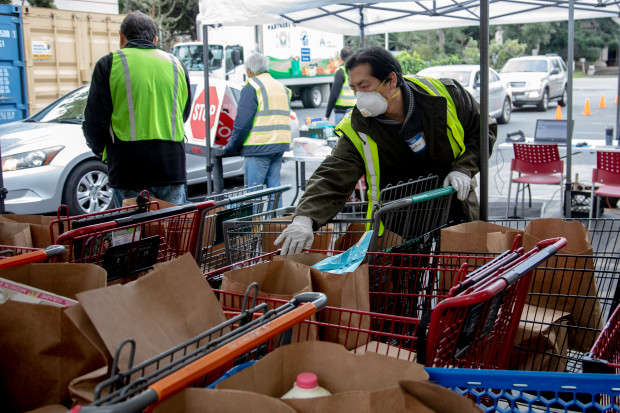
(Karl Mondon/Bay Area News Group)
The Best Side of Humanity
During the Plague of Justinian, the official Court Historian Procopius kept notes on how the plague affected the Roman Empire. In addition to some rather bizarre medical theories, he saw the way the plague brought out the very best of humanity. “[T]hen all, so to speak, being thoroughly terrified by the things which were happening, and supposing that they would die immediately, did, as was natural, learn respectability for a season by sheer necessity.” From History of the Wars, II.xxii–xxxiii translated by H.B. Dewing.
- One constant in every disaster is the appearance of some form of healthcare worker, whether professional or volunteer, providing care for patients despite personal danger, overwhelming circumstances, inadequate supplies, exhaustion, and every other possible obstacle.
- As far back as the Plague of Justinian, the court historian Procopious wrote about the exhausting and selfless labors of those who cared for plague patients, though it seems the main job of a nursing aid at the time was stopping their patients from committing suicide before they died from the plague: “When they were struggling to rush headlong out of their houses, they would force them back by shoving and pulling against them.”
- Elsie Maud Inglis started a women’s medical corps during WWI and established two hospitals on front lines. When the German army advanced, she was taken prisoner with her patients rather than be evacuated. During a later prisoner exchange, Elsie Inglis refused to be released unless her captors also released her patients, saving 13,000 injured Serbian POWs.
- During the 1918 Influenza Pandemic (sometimes called Spanish Flu), the ease of infection and limited hospital space resulted in incredibly high mortality rates among everyone who worked near the sick. Stories emerged after of nurses working straight through their shifts only to die at the end, of medical students taken out of classes to run entire hospital wards, of doctors continuing to direct care rotas despite being confined to bed themselves.
- Corporal Desmond Doss repeatedly ran into enemy fire to recover wounded soldiers as a medic in WWII. Despite refusing to carry any weapon as a conscientious objector, he saved nearly 100 wounded soldiers under fire and was awarded the Medal of Honor.
- After running 26.2 miles, many Boston marathoners who crossed the finish line after the 2013 bombing continued running several more miles to Massachusetts General Hospital to donate blood.
- Despite having been hit earlier by Hurricane Katrina, Cuba was one of the first countries to offer aid to the US victims of the hurricane, offering to send 1,586 doctors and 26 tons of medicine.
- Kellan Squire, an ER nurse who ran for Lieutenant Governor of Virginia (in part to fix the healthcare system) has this to say about healthcare workers in the current pandemic: “We’re going to get infected, we’re going to die and get ICUed at a rate a few times above other subgroups, we’re going to charge in without the resources or support we need to do our jobs. It’s just what we do. It’s not like we’re going to stop… especially now.”
- Despite facing serious threats to themselves or their families, there are always people who are willing to face that danger in order to aid or shelter others.
- Ninety percent of the Jewish population of Denmark survived the Holocaust because nearly the entire Danish population worked together to hide or evacuate their friends and neighbors when the Nazis invaded.
- Every part of Harriet Tubman’s life was pretty heroic.
- In 1943, hundreds of non-Jewish women married to Jewish men who had been deported gathered every day at the Rosenstrass e 2-4 Welfare Office to demand the release of their relatives, risking harassement, arrest, and execution while completely unarmed themselves. The “Rosenstrasse Protest” was successful; all of the arrested men were released, and the protesters faced no repercussions.
- In Kenya in 2015, al-Shabab terrorists started a pattern of entering an area, separating Muslims and non-Muslims at gunpoint, and then massacring all of the non-Muslims. A bus leaving Nairobi in December was boarded by terrorists who demanded that the passengers separate by religion, but Kenyan Muslims on board refused to move, sheltering their fellow riders in their ranks. The al-Shabab terrorists eventually left without firing a shot.
- The families of Sarajevo business partners Yosef Kavilio and Mustafa Hardaga wound up saving each other, decades apart. In the 1940s, Mustafa Hardaga and his wife Zejneba hid the Jewish Yosef Kavilio and his family in their cellar. Decades later, in 1992, Kavilio’s descendants in Israel saw on television the danger Zejneba Hardaga faced from Bosnian troops. The petitioned the Israeli government to locate Zejneba and her daughter, who were safely evacuated to Israel.
- Sometimes doing the right thing means deliberately disobeying laws or going against direct orders from a superior.
- Dominican Friar Najeeb Michael, who was in charge of digitizing thousands of ancient volumes of Iraqi history, refused to leave his abbey in Mosul when ISIL invaded. Instead of evacuating immediately as his superiors orders, he kept boxing up and moving cases of books to prevent them from being destroyed. Even when he finally started to leave the city, he kept stopping his car to children and disabled passengers on his way to safety.
- Hugh Thompson was a helicopter pilot in Vietnam who landed his helicopter between American soldiers and the fleeing residents of My Lai, threatening to open fire on the soldiers if they did not stop killing civilians and destroying homes. He then flew dozens of survivors to receive medical care. Despite direct orders to cover up the My Lai Massacre, Major Thompson cooperated fully with the investigation into the incident. He was later ostracized by fellow military members, receiving anonymous death threats and mutilated animal bodies left on his front porch.
- Tibor Rubin repeatedly broke out of North Korean POW camps to smuggle food back in to fellow prisoners. He also provided medical aid to other POWs, using skills he picked up while surviving Mauthausen concentration camp during the Holocaust
- In 1944, Nazi ships tried to round up all of the Jews in the Ionian Islands of Greece. When the SS demanded that Mayor Loukas Karrer of Zakynthos provide a list of all Jews on the island, Bishop Chrysostomos handed them a list with two names on it: Mayor Loukass Karrer and Bishop Chrysostomos. Meanwhile, the 275 Jews on the Zakynthos were hidden by residents of nearly inaccessible mountainous villages; every person on the island collaborated in saving their Jewish neighbors.
- The Edelweiss Pirates was a loosely connected network of ex-Hitler Youth, mostly between the ages of 14 and 18, who did everything they could disrupt the Nazi war effort in Germany, including blowing up railways and helping Jews escape execution.
- Sergeant Dakota Meyer was ordered to ignore a distress call at Ganjigal and to fall back instead. He drove into the battle zone five times, transporting wounded soldiers in his Humvee and providing cover fire for other military personnel to escape.
- Dr. Albert Battel was a lieutenant in the German army who stopped the SS from entering Przemysl ghetto in 1942. While the SS was stalled trying to get through the blocked bridge, Lieutenant Battel and his unit moved families out of the ghetto and hid them at his own Army headquarters, preventing the SS from deporting them to the Belzec Extermination Camp.
- With the stock market practicing pogo moves, kids needing extra childcare, people missing shifts, and every possible industry seeing some kind of disruption, it’s still amazing to see businesses putting the good of the community over profit.
- Zahid Iqbal has donated and delivered thousands of “coronavirus kits” from his convenience store in Edinburgh, Scotland. He and his employees have made the kits from toilet paper, antibacterial handwash, tissues, and anti-inflammatories and then brought them to retirement homes and the homes of at-risk neighbors.
- Healthcare workers in America are facing a serious shortage of Personal Protective Equipment (PPE), putting them at additional risk of infection while they work. Several medical tv shows are donating PPE used on sets (still sterile boxes of gloves, face masks, surgical gowns, hairnets, etc.) to EMTs, fire stations, and hospitals.
- Lazy Magnolia Brewing Company in Mississippi has converted its distillery to make spray disinfectant.
- There are some very creative methods of giving back to the community and helping society that take a specific blend of available talent and courage to perform.creative methods of giving
- Chef José Andrés closed all of his restaurants in DC to comply with restrictions on social gatherings. With empty kitchens and refrigerators full of food, he decided to go back to work making packaged meals to distribute to people in quarantine, healthcare workers, and anyone else in the area who needs help feeding their families.
- Other restaurants that have to close for social distancing are donating massive amounts of food (as well as cooking and packaging supplies) to local food banks, shelters, Meals on Wheels, and community kitchens.
- Chiari Hospital in northern Italy needed ventilator valves to help COVID-19 patients breathe. Engineers from Isinnova collaborated with the 3-D printing company FabLab to produce replicas of the valve quickly, allowing the ventilators to stay in use.3-D printing ventilator valves.
- Musicologist Ahmad Sarmast graduated from school and then returned to his native Afghanistan to record oral musical traditions he feared would be lost in chaos and uncertainty. Along the way, he started teaching girls to play orchestral instruments in defiance of religious restrictions. He has already survived one bombing assassination attempt and continues to record, notate, and teach despite now being nearly deaf and riddled with shrapnel.
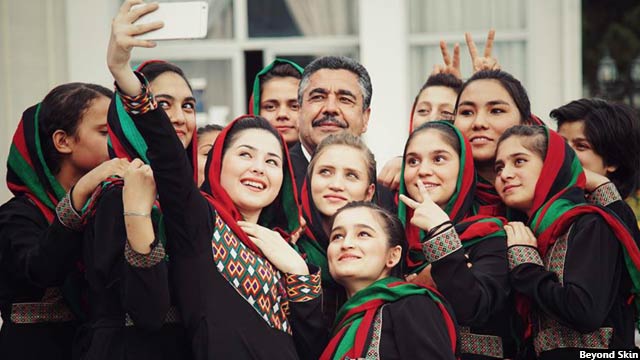
The Worst Side of Humanity
Unfortunately, there will always be people waiting to take advantage of any situation. Some betray their neighbors to save themselves. Some see any opportunity for profit or personal gain. Some seem to hurt people for no other reason than the pleasure they feel when hurting people. Again, Sir Terry Pratchett said it best: “Evil begins when you begin to treat people as things.” (from I Shall Wear Midnight)
- The phrase “adding insult to injury” comes to mind when reading these next examples. People who are kicked when they are down, sometimes in the most petty of ways.
- After the students protesting in Tiananmen Square were gunned down in 1989, the Chinese government reportedly charged families of victims a “bullet fee” for the cost of the bullets used to execute their dead family members.
- During Irish Potato Famine, Sultan Abdul Medjid Khan of the Ottoman Empire tried to donate £10,000 and ships full of food to send to Ireland. British ambassadors told him it was forbidden for anyone to donate more than Queen Victoria, who had only donated £1,000.
- People running from Hurricane Katrina were turned back at gunpoint when they tried to cross the bridge into neighboring town of Gretna.
- White Star Line billed the families of Titanic victims for freight shipping cost of having bodies returned, used a weird contract clause to fire every employee the moment the ship started to sink, and billed the families of the band members for the cost of uniforms that weren’t returned (because they were too busy playing to keep people calm as the ship sank to worry about taking off their clothes and stowing them safely on a lifeboat for return to the company).
- The Mongol army was busy beseiging the city of Kaffa (present-day Feodosiya) on the Crimean Peninsula when they were forced to retreat because their ranks were so depleted by the Black Death. Stories from the time claim that the Mongols catapaulted the bodies of soldiers who died from the plague over the city walls into Kaffa on their way out.
- At the end of WWII, Soviet soldiers held in German POW forced labor camps were returned to Russia. Trains carrying these soldiers home were diverted to Russian forced labor camps, gulags, where most of the soldiers were sentenced to 10-20 years for the “crimes” of assisting the enemy and having possibly been exposed to Capitalist Western POWs.
- A scapegoat can always be found for any disaster or atrocity. Xenophobia and bigotry are easier than understanding the facts.
- Armenians were blamed for the Ottoman Empire’s defeat in WWI, providing a convenient justification for the Armenian Genocide.
- Jews, Romani, witches, and sailors were all blamed for Black Death at one point or another. Terrified plague mobs expelled, burned alive, deported, stoned, and performed every other imaginable atrocity on whichever group was most convenient at the time.
- Mentally and physically handicapped Robert Hubert was not in London during the Great Fire of 1666; his ship didn’t even arrive until two days after the fire was extinguished. Nevertheless, he was tried and hanged for firebombing London and starting the Great Fire.
- Jerry Falwell and Pat Robertson went on TV and announced that the 9-11 terrorist attacks were the fault of “liberal civil liberties groups, feminists, pagans, homosexuals, and abortion rights supporters.”
- The current novel coronavirus COVID-19 pandemic has been blamed on China (especially Wuhan province), Chinese people, people of Chinese descent, people of partial Chinese descent, and people who might look a bit Asian if you tilt your head at just the right angle. Government officials (including those in very high office) have blamed the Chinese government, and it trickles all the way down to children being bullied for “spreading the virus.”
- It seems there will always be someone willing to take advantage of others’ fear, selling the Brooklyn Bridge and a guarantee to Heaven all in one convenient package.
- “Spiritual leaders” whose primary goal is to raise funds have started asking for donations in return for prayers, going so far as to ask for donations to build a hospital for patients with coronavirus (conveniently leaving out the bit about the hospital being a spiritual place rather than an actual building where medical care is provided.)
- The prices of everything from face masks to canned food have skyrocketed around the world.
- Price-gouging of food and fuel became so severe during WWII that enabling price controls was one of the primary reasons the government enforced a rationing system.
- “Doctors” during the Black Plague in Europe charged extreme prices for very expensive treatments, such as eating a paste of ground emeralds or bathing in the urine of uninfected mothers.
- People hoard anything they think might become scarce, even if they don’t immediately need it, even if others need it more.
- While people starved by the millions in 1845-1847, the worst years of Ireland’s Great Hunger, millions of bushels of grain were shipped to England, along with livestock, dairy, and beer. Landlords only allowed the peasants to eat potatoes, which had all been destroyed by blight.
- In Australia, people with stockpiles of food have received death threats.
- People panic buying medical supplies, especially in the US, have caused a shortage in hospitals, clinics, fire stations, nursing homes, etc. Doctors and nurses are re-using face masks, making surgical gowns at home, and not doubling gloves in an attempt to make their increasingly limited supplies last.
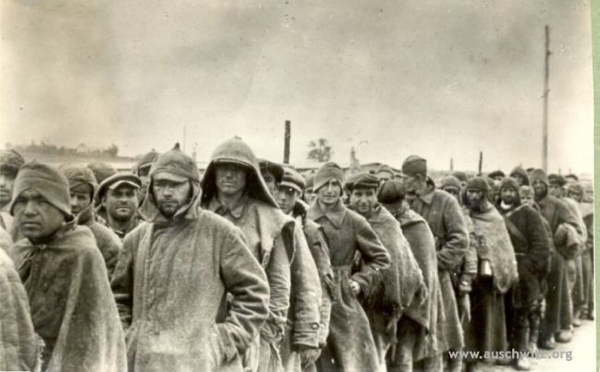
Um… What?
Fear makes people do all sorts of strange things, like buying loads of toilet paper in preparation for an illness that doesn’t cause any increase in toilet use.
- City officials seeking to cure the “Dancing Plague” in Strasbourg in 1518 asked medical officials how to help people who were literally dancing themselves to death, flailing and jerking around for days on end until they dropped dead from exhaustion. The doctors decided that these people had a sickness that needed to be shaken off… by forcing them to keep dancing!
- A strip club in Las Vegas is advertising that the lap dances on offer are guaranteed to be free from coronavirus.
- People have begun sharing very odd photos and videos of the ways they are passing time while in quarantine or isolation. Pets wearing ties or being unhelpful coworkers are a popular photo subject, as are twitter competitions for things like jumping on the bed or holding one’s breath.
- The Justinian Plague often began with very high fevers, causing hallucinations. These visions were often interpreted as signs from God of punishment to come or evidence of demonic possession. Exorcism was a common prescription, usually carried out by a tonsured monk. There were also people who believed that the monks were demons and the cause of the plague and fled from the sight of any man who was getting a bit bald on top.
- According to some reports, the Dutch are hoarding cannabis in preparation for whatever COVID-19 brings, while the French are building stockpiles of red wine.
- Something the Justinian Plague and the 1918 Influenza Pandemic had in common – people often wore name tags, armbands, toe tags, or some other external form of ID because the illness could kill so quickly that it was often the only way of ensuring your body would be identified if you dropped dead on the street.
- With the aquariums in Chicago closed to visitors, the penguins have taken over!

Be the Best!
You can be one of the good guys. Here are some ways you can show the best of humanity during this pandemic (and at any other time!)
- Donate blood! The Red Cross really needs blood donations from healthy people to meet the needs of virus patients on top of all their regular needs.
- Buy vouchers or gift certificates online for local restaurants, bars, shops, etc. Redeem them when things are back to normal. Think of it like a microscopic micro-loan.
- If you are crafty, make reusable face masks for medical professionals. Here are some instructions.
- Donate to organizations working to help the most vulnerable people in our societies.
- Call, text, email, video chat with your friends, family members, work acquaintances, that guy down the street you wave to while walking your dog. Social distancing, while necessary for physical health, is not great for mental health. Make an extra effort to reach out to isolated people and stay connected.
- https://www.flattenthecurve.com/

